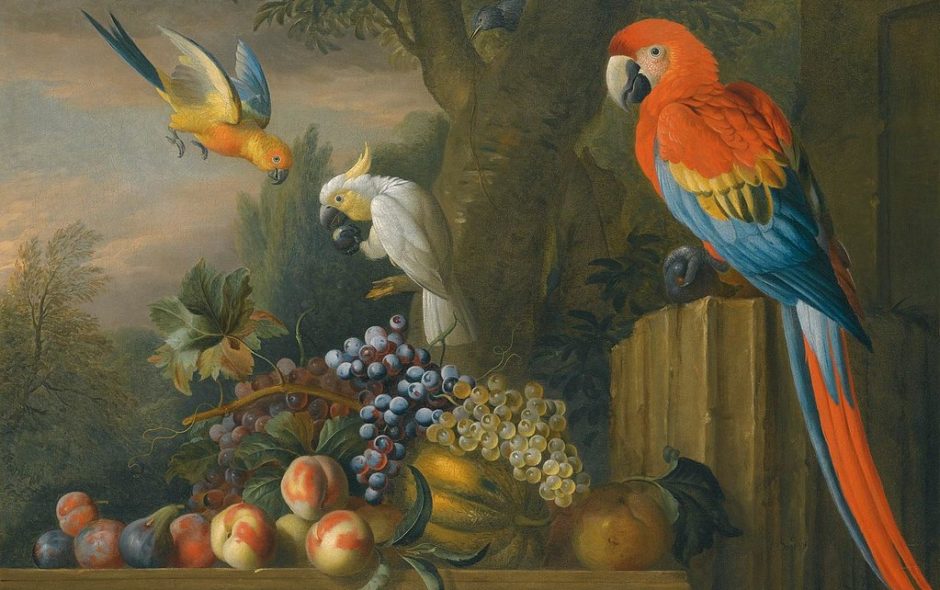Translation into Spanish of an extract from Flaubert’s Parrot, written by English author Julian Barnes. The book was first published in 1984.
Flaubert’s Parrot
Perhaps the foundry’s assurances can be believed; perhaps this second-impression statue will last. But I see no particular grounds of confidence. Nothing much else to do with Flaubert has ever lasted. He died little more than a hundred years ago, and all that remains of him is paper. Paper, ideas, phrases, metaphors, structured prose which turns into sound. This, as it happens, is precisely what he would have wanted; it is only his admirers who sentimentally complain. The writer’s house at Croisset was knocked down shortly after his death and replaced by a factory for extracted alcohol from damaged wheat. It wouldn’t take much to get rid of his effigy either: if one statue-loving Mayor can put it up, another perhaps a bookish party –liner who has half-read Sartre on Flaubert might zealously take it down.
I begin with the statue, because that’s where I began the whole project. Why does the writing make us chase the writer? Why can’t we leave well alone? Why aren’t the books enough? Flaubert wanted them to be: few writers believe more in the objectivity of the written text and the insignificance of the writer’s personality; yet, still we disobediently pursue. The image, the face, the signature: the 93 per cent copper statue and he Nadar photograph. The scrap of clothing and the lock of hair. What makes us randy for relics? Don’t we believe the words enough? Do we think the leavings of a life contain some ancillary truth?
El loro de Flaubert
Quizá se pueda confiar en las garantías que ofrece esta fundición; quizá esta segunda estatua sí dure. Pero no encuentro ningún fundamento en particular que me inspire confianza. Casi nada más que haya estado relacionado con Flaubert ha durado alguna vez. Falleció hace un poco más de diez años y todo lo que queda de él es papel. Papel, ideas, frases, metáforas, una prosa estructurada que se convierte en sonido. Y esto es, en realidad, precisamente lo que él hubiera deseado; son solo sus sentimentales admiradores los que se quejan. La casa del escritor en Croisset fue demolida poco después de su muerte y, en su lugar, se construyó una fábrica para extraer alcohol del trigo dañado. Tampoco llevaría demasiado tiempo deshacerse de su efigie: si un alcalde aficionado a las estatuas pudo erigirla, otro —quizá un amante de la palabra escrita y fuerte defensor de determinada línea política, pero que solo haya leído por encima las reflexiones de Sartre sobre Flaubert— bien podría tirarla abajo por celos.
Empiezo por la estatua porque fue allí donde di comienzo a todo el proyecto. ¿Por qué la escritura nos obliga a perseguir al escritor? ¿Por qué no podemos dejarlo tranquilo? ¿Por qué los libros no son suficiente? Flaubert quería que sí lo fueran: pocos escritores creen más en la objetividad del texto escrito y en la insignificancia de la personalidad del escritor. Sin embargo, aun así, nosotros, desobedientes, seguimos insistiendo. La imagen, el rostro, su firma, la estatua de noventa y tres por ciento de cobre y la fotografía de Nadar. El retazo de una prenda y el mechón de cabello. ¿Qué nos lleva a excitarnos tanto con las reliquias? ¿No creemos lo suficiente en las palabras? ¿Acaso pensamos que los restos de una vida contienen alguna verdad complementaria?

